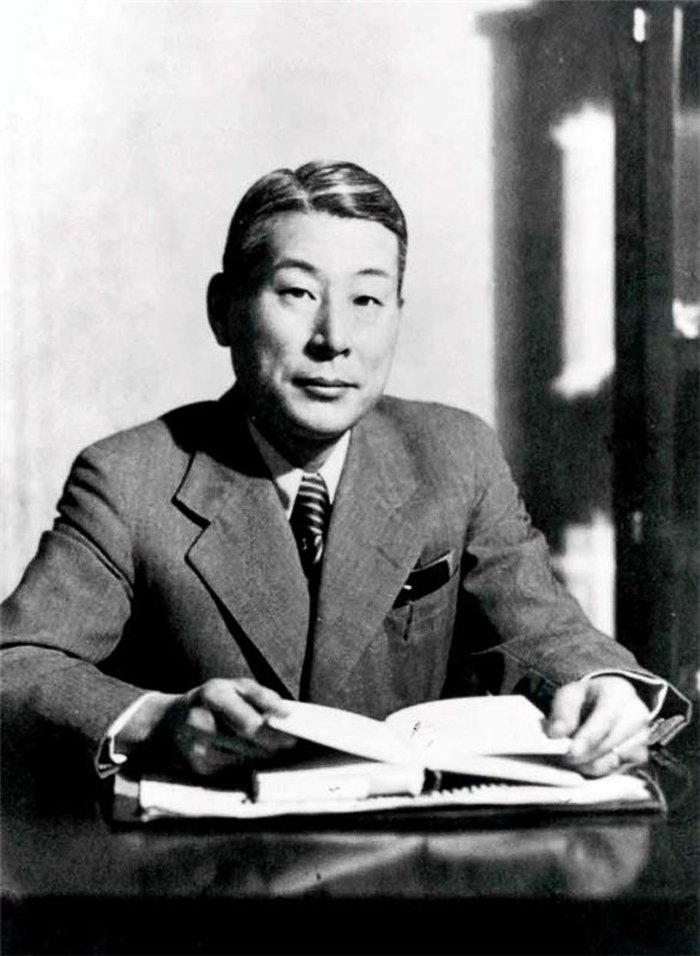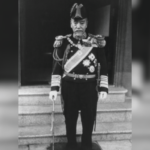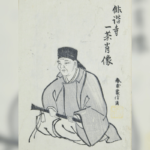

1900 – 1986
杉原千畝 Chiune (Sempo) Sugihara
Japanese Diplomat Who Saved the Lives of 6,000 Jewish People
Early Life
| 1900 | Born in Gifu Prefecture, Japan |
| 1918 | Enrolled in the First English Preparatory Program at Waseda University’s Advanced Teacher’s College |
| 1919 | Withdrew from Waseda University to study abroad at the Nichiro Kyokai Gakko (Russo-Japanese Association School) on a government scholarship |
| 1939 | Appointed to serve in the Japanese Consulate of Kaunas in Lithuania |
| 1940 | Continues to issue visas in Japanese currency to Jewish refugees gathering at the Japanese Consulate |
| 1947 | After the war, he retired due to the problem of visas being issued against the Ministry of Foreign Affairs policy. Spent the rest of his life as a businessman, among other roles. |
About the Holocaust Against Jewish People
Sugihara saved the lives of over 6,000 Jewish people from the Holocaust, which was a state-sponsored, systematic genocide and persecution of Jewish people committed by the Nazi regime and its collaborators between 1939 and 1945. A series of atrocities were committed under this dictatorship, primarily against the Jewish people. It is estimated that the Nazi regime massacred more than 6 million Jewish people, and countless others were also impacted.
The mastermind of the Holocaust was the Nazi German regime led by Adolf Hitler. After World War I, when Germans were burdened with reparations for their losses and were in dire economic and political straits, Hitler continued to insist that it was the Jews who had brought such tragedy upon Germany. He claimed he would “rebuild Germany as it was before the war,” which was supported by many Germans of the time.
Jewish people living in Germany were subjected to arrests, economic boycotts, deprivation of civil rights, imprisonment in concentration camps, random violence, and state-planned pogroms like “Kristallnacht” (Night of Broken Glass). Jewish people fought against Nazi persecution in various ways. German Jews, forcibly isolated from German society, relied on and expanded their own institutions and social organizations. However, faced with growing oppression and physical violence, many Jewish people fled Germany.
Sugihara, a diplomat stationed in the Lithuanian city of Kaunas, saw many Jewish people pleading in front of the Japanese consulate to leave Lithuania for a safer place. In defiance of the Japanese government’s instructions at the time, he began issuing visas to them.
How Sugihara got Involved
In August 1939, just before the outbreak of World War II, Sugihara was assigned as acting consul for the opening of the Japanese Consulate in Kaunas, Lithuania. The ravages of war in Europe began with Nazi Germany’s invasion of Poland in September 1939, resulting in countless displaced persons. In particular, Jewish people were subjected to harsh persecution, which later became known as the Holocaust, following the “Jewish Exclusion Movement” that began with the establishment of the Nazi dictatorship in Germany in 1933.
At the time, Poland had the largest Jewish community in Europe. After Poland was divided between Nazi Germany and the Soviet Union in September 1939, many Jews faced severe discrimination. Some succeeded in fleeing to Lithuania, which was still an independent and neutral country at that time. However, they were forced to flee again when Soviet troops entered the country in June 1940, prompting many to rush to the Japanese consulate, seeking transit visas through Japan to escape to other countries.
Sugihara’s Struggle Between Humanity and Discipline
Sugihara issued transit visas to Japan in large numbers under urgent circumstances. According to his memoirs, compiled in his later years, it was on the morning of July 18, 1940, that a large number of refugees began flooding the Japanese consulate in search of transit visas. The day before, Lithuania had held a general election that established a pro-Soviet government, creating a widespread perception that the country was now under the complete control of the Soviet Union. At the same time, Nazi Germany controlled Western and Northern Europe, leaving the only escape route from Europe traveling east to Japan via the Soviet Union and Siberia, and then on to a third country. Furthermore, the Soviet Union had requested that all diplomatic missions in Lithuania be closed by the end of August, making it even harder to acquire visas.
According to Japan’s entry rules at the time, the main requirements for visa issuance were possession of a passport, entry permission from the destination country, and sufficient travel expenses, which could normally be determined by the Japanese diplomatic mission abroad. However, as Sugihara noted in his memoirs, many of the refugees flooding the Japanese consulate did not meet any of these requirements, and there were so many of them. Therefore, immediately upon receiving requests from the refugees, Sugihara sent two telegrams to the Ministry of Foreign Affairs asking whether they could issue transit visas. The telegrams stated that the consuls could not refuse the visas for humanitarian reasons and requested permission to issue transit visas at their discretion without being bound by formal requirements. However, this request was denied.
Under these circumstances, Sugihara agonized over whether to obey the government or save lives. He wrote about his feelings in his memoirs as follows:
“To tell the truth, I thought about it all night. After struggling and agonizing, I concluded that humanity is paramount. Then, fearing nothing, I decided to issue those visas.
In the end, I made my decision as a human being. I thought it through all night long. What I did might have been wrong as a diplomat. Still, I couldn’t abandon those thousands of people depending on me. I did not do anything special – I just did what I had to do.”
Life in Japan After Disobeying the Government’s Order
In 1947, Sugihara returned to Japan with his family, but what awaited him upon his return was a recommendation to resign from the Ministry of Foreign Affairs due to his responsibility for issuing the visa against the ministry’s decision.
After that, Sugihara spent his days as a local representative for a trading company and never talked about the visa issue. However, in August 1968, Sugihara was suddenly contacted by a Jewish person named Nishri, a counselor at the Israeli Embassy. When he met Sugihara, he held a tattered visa in his hands and thanked Sugihara, saying, “Mr. Sugihara, we have never forgotten you,” while bursting into tears. Jewish people around the world had been looking for Sugihara for some time, and he received many awards from Western countries. In the end, he was commended with the “Righteous Among the Nations” award from the Israeli government in 1985, given only to those who saved Jewish people. Of course, he was the only Japanese person ever to receive such an award, and on October 10, 2000, Sugihara’s honor was officially restored by the Japanese government.
If Sugihara had refused to issue visas and left the Jewish people to die as ordered by the Ministry of Foreign Affairs at that time, postwar Japan would have been fiercely criticized by the rest of the world. Sugihara saved the lives of Jewish people and Japan at the same time. As a new standard-bearer of the era of human rights and international cooperation, Sugihara will be greatly admired worldwide.
.
.
.




